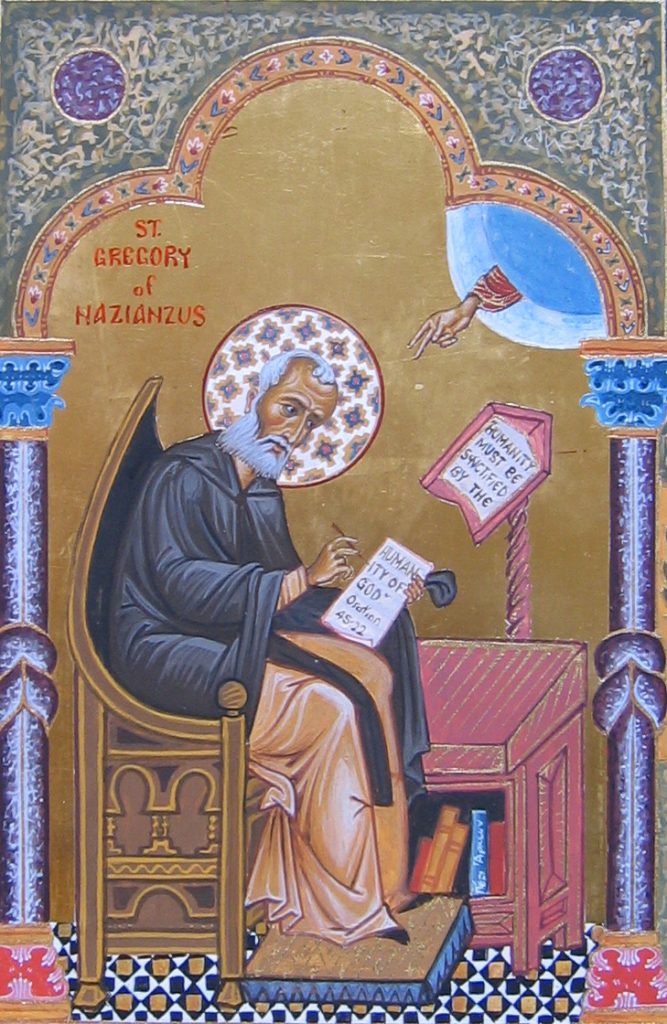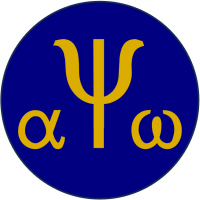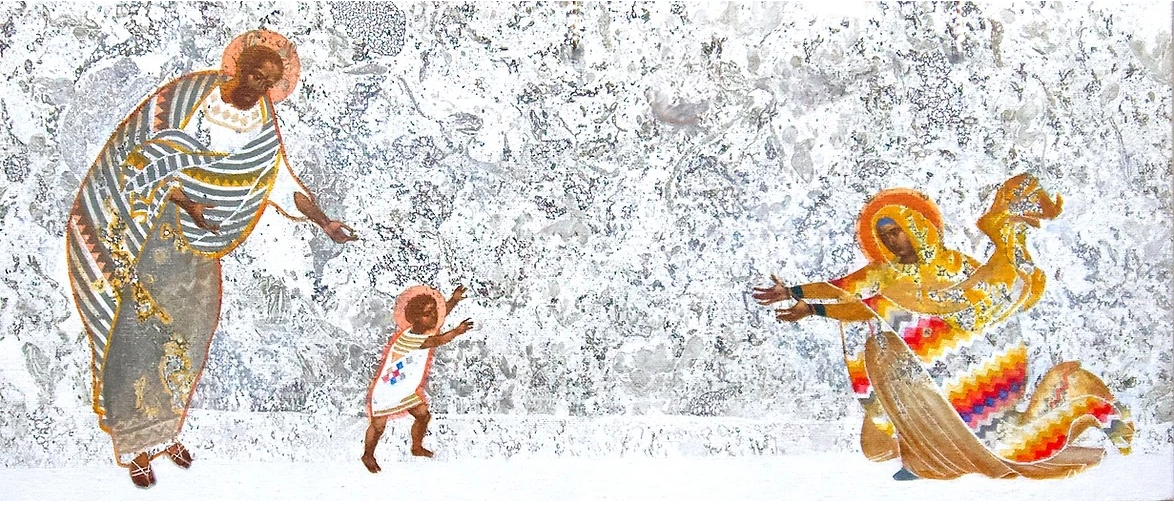
Gregory of Nazianzus
St Gregory of Nazianzus (c.330 – 390 AD), along with his best friend Basil of Caesarea and Basil’s younger brother Gregory of Nyssa, make up the three Cappadocian Fathers. After enjoying an excellent (if rather prolonged) classical education in Caesarea in Palestine, Alexandria and Athens, Gregory seemed set on a gentlemanly life of ascetic retirement and contemplation on his family’s extensive estate;
Events, however, dictated a different course of action and in the turmoil of the 4th century Arian controversy, Gregory was (forcibly!) ordained priest and then bishop before being called to Constantinople. The struggles of a sensitive man, with a penchant for solitude, being pressed into public service, is a recurrent theme in Gregory’s writing.
Whilst at Constantinople, Gregory composed and delivered his five Theological Orations which have come to be seen as a classic statement and defence of Trinitarian orthodoxy. His efforts in this field earned him the title of “The Theologian” – a recognition which he shares with only two others in the tradition of the Orthodox Church.
Quotes from Gregory of Nazianzus
I’ve compiled some of my favourite quotes from Gregory of Nazianzus on some of his common themes. Click the links to read more…
Gregory of Nazianzus’ Texts in Translation
Quotes and books about a person are all well and good but there’s nothing better than reading an entire text by someone to fully understand their approach.
P. Schaff and H. Wace (editors), The Nicene and Post-Nicene Fathers of the Christian Church: Second Series, Volume 7: Cyril of Jerusalem, Gregory of Nazianzen
This one volume contains a large selection of Gregory’s writings – 24 of his 45 orations and 95 of his 245 letters – making it great value and a very good “one stop shop”. The major drawback is that these translations are not always light reading, due to the Victorian language employed. In addition, none of Gregory’s poetry is included (but you can make up for that with one or both of the collections of his poetry below). However, it’s still very worth obtaining. You might also want to try Abebooks.co.uk. Alternatively, view, download and print the texts for FREE! See the CCEL website.
F. Williams and L. Wickham (translators), On God and Christ: The Five Theological Orations and Two Letters to Cledonius (New York: SVS Press, 2002)
This affordable little paperback collects together Gregory’s classic speeches on the Trinity (the Five Theological Orations) with two important letters discussing Christology, in an easy to read modern translation. If you want to understand & encounter Gregory “The Theologian” this is the book to have. All of these texts are also in the Nicene and Post Nicene Fathers collection (above), but I’d recommend reading these works in this version – it just makes life easier.
Peter Gilbert (translator), On God and Man: The Theological Poetry of St Gregory of Nazianzus (New York: St Vladimir’s Seminary Press, 2001)
This small paperback contains a useful short introduction to, and overview of, Gregory’s poetry as well as a selection of translations. I’m not convinced the translator has managed to convey the gravitas which Gregory would have intended in certain places, but then, what do I know?
J. A. McGuckin (translator), Saint Gregory Nazianzen: Selected Poems (Oxford: SLG Press, 1986)
A booklet (Fairacres Publication 94) containing a handful of Gregory’s poems in translation. Some of these are also translated by Gilbert (see above), but where they overlap, I prefer McGuckin’s version. Since this text only costs a couple of pounds (+ p&p) second hand, it would be a crime not to get a copy of both.
C. White, Gregory of Nazianzus: Autobiographical Poems (Cambridge: Cambridge University Press, 2008)
In contrast to the two books of Gregory’s poetry mentioned above, this text concentrates on Gregory’s autobiographical poems. Most importantly this book contains a translation of his long De Vita Sua (“Concerning his own life”), in which Gregory recalls and reviews his (sometimes quite sad) life story from the perspective of retirement on his family’s estate. If you want to get in touch with Gregory at his most melancholy, this is the book for you! If you’re able to read a little Greek, you may also appreciate the Greek text on the facing pages which you can dip into whilst reading the English translation.
M. M. Vinson (translator), St Gregory of Nazianzus: Select Orations, Fathers of the Church 107 (Washington DC: Catholic University of America Press, 2017)
This book consists of translations of 19 further orations which were not included in the Nicene and Post Nicene Fathers collection (above). There are still 2 other orations (the invectives against the Emperor Julian) which are unfortunately not included in either collection. But if you’re looking to collect an (almost) full set of Gregory’s orations, you might want to pick up this book as well.
Books about Gregory of Nazianzus
If you’re wanting to read more and the life and times of Gregory of Nazianzus, here are some recommended starting points.
J. A. McGuckin, St Gregory of Nazianzus: An Intellectual Biography (New York: St Vladimir’s Seminary Press, 2001)
McGuckin provides an exceptionally insightful and detailed analysis of the life & work of St Gregory, yet manages to do so in a very easy to read style. This book contains much easily-digestible information on the important theological debates and history of the 4th century, arranged around Gregory’s life. If you’re intrigued by the sensitive figure of St Gregory, this is an absolute must! The book on Gregory – highly recommended. Also worth looking on Abebooks.co.uk.
R. R. Ruether, Gregory of Nazianzus: Rhetor and Philosopher (Lima, Ohio: Academic Renewal Press, 2003)
Gregory had a long (and undoubtedly very expensive) classical education, steeped in Greek culture & philosophy. This inheritance comes across in Gregory’s style of writing which spans several genres – theological treatises, poetry, panegyrics and other orations.
This book examines both Gregory’s use of his cultural background in his writings as well as Gregory’s attempt to combine the life of an educated gentleman with the ascetic and contemplative life. Along the way insights into Gregory’s life and personality are provided.
Note: Originally published by Oxford University Press in 1969, but reprinted in 2003. The details above are for the reprinted edition.
D. F. Winslow, The Dynamics of Salvation: A Study in Gregory of Nazianzus (Patristic Monograph Series #7) (Cambridge, MA: The Philadelphia Patristics Foundation, 1979)
A reshaped PhD thesis on the concept of theosis (deification) – “one of the major soteriological themes absent from the New Testament but very prominent in patristic literature” – and a constant theme in St Gregory’s vision of the God-human interaction. Not a book for the newcomer to Early Church study, but once you’ve read some of Gregory’s writings (and perhaps some works by St Athanasius and/or Cyril of Alexandria) it would be well worth trying to get hold of a copy if you’re trying to grapple with theosis. The final chapter has a useful discussion of what theosis is not as well as what it is. Not in print, but if you’re very lucky you might find a copy via the above link on Abebooks.co.uk (or a good university library).

